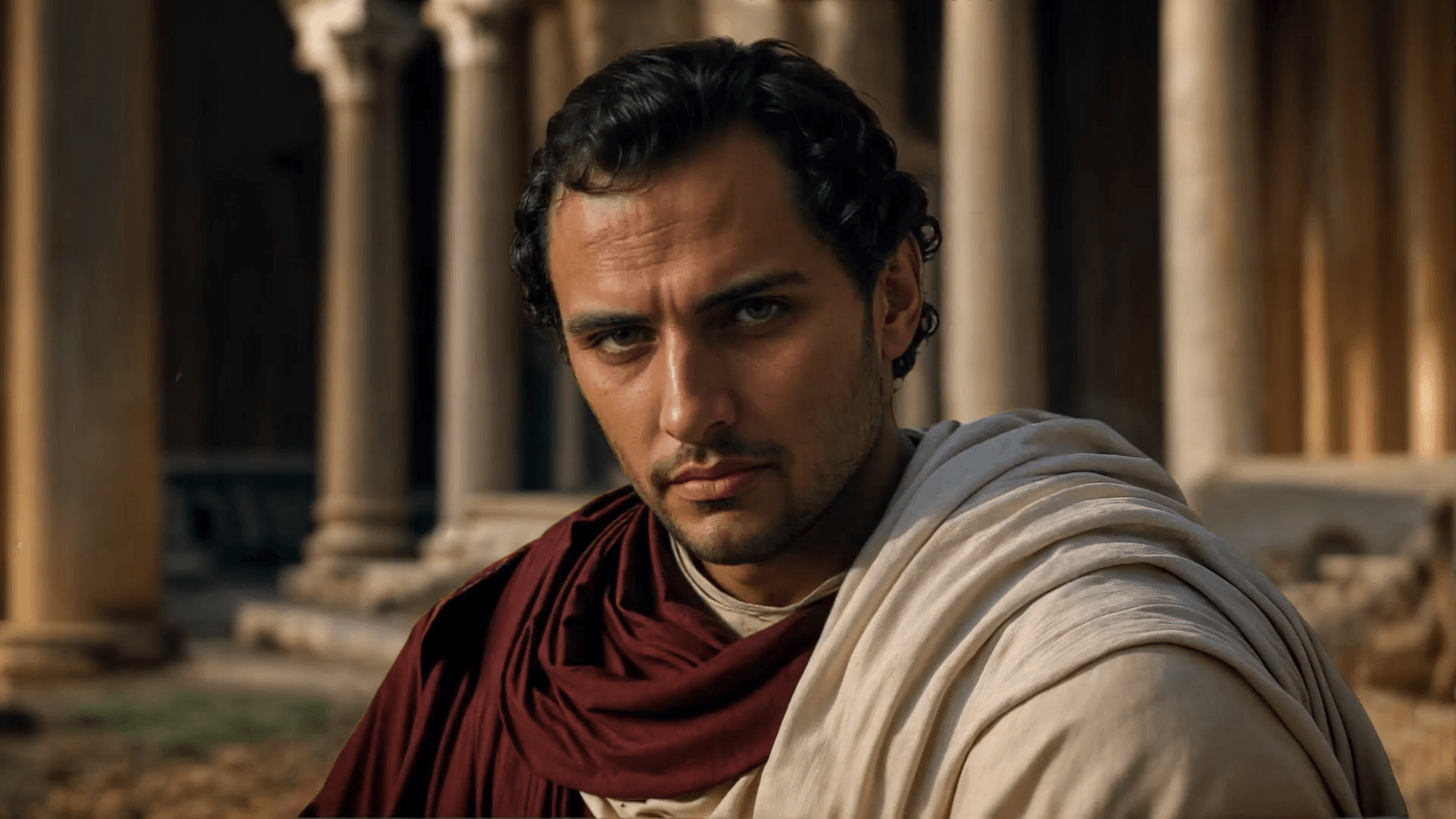The Fall of Icarus: What the Ancients Teach Us About Progress
Hind MoutaoikiIR&D Manager
Fri Apr 25 2025

The story of Icarus, an ancient Greek tragedy—of wax wings melting in the heat of an approached sun—continues to offer profound wisdom across millennia, speaking to the eternal human struggle between ambition and limitation.
In the boundless vault of mythological narratives that have shaped Western thought, few tales capture the delicate balance between aspiration and prudence quite like the story of Icarus. This ancient Greek tragedy—of wax wings melting in the heat of an approached sun—continues to offer profound wisdom across millennia, speaking to the eternal human struggle between ambition and limitation.
The Classical Tale Unfolds
The story begins in the labyrinthine prison of Crete, where the brilliant Athenian craftsman Daedalus found himself imprisoned alongside his young son Icarus. Having designed the infamous labyrinth to contain the Minotaur, Daedalus possessed knowledge deemed too dangerous by King Minos to be permitted beyond the island's shores. With escape by sea impossible due to Minos's formidable naval fleet, Daedalus turned his ingenuity skyward.
In Ovid's masterful "Metamorphoses," we encounter the meticulous scene of preparation as Daedalus fashions two pairs of wings from feathers, wax and twine. With fatherly concern, he instructs his son in the art of artificial flight:
"'Fly the middle course, I warn you, Icarus,' said the father. 'If you fly too low, the sea will sodden the wings; if you fly too high, fire will scorch them. Travel between the extremes. And take no guidance from the stars...but follow where I lead.'"
This paternal counsel embodies the ancient Greek value of moderation—the wisdom of the middle path between perilous extremes. Yet the exuberant Icarus, overwhelmed by the unprecedented freedom of flight, disregards this crucial guidance.

Virgil's "Aeneid" references the tale when describing the temple doors at Cumae, crafted by Daedalus himself after his successful escape to Sicily. In Book VI, lines 14-33, Virgil notes with poignancy how Daedalus attempted twice to depict his son's tragic fall in gold but was overcome by grief each time, his hands trembling too severely to complete the work. This detail reveals the profound human cost that accompanies hubris—not merely Icarus's death, but the enduring sorrow of those who survive.
As Ovid vividly describes the fatal ascent: "The boy began to rejoice in his bold flight and, abandoning his guide, drawn by desire for the heavens, soared higher. The proximity of the scorching sun softened the fragrant wax that held his wings. The wax melted. He beat his naked arms but, lacking wings to catch the air, could gain no purchase... and his lips, still calling his father's name, were swallowed by the blue-green sea."
Layers of Meaning
While superficially a cautionary tale against hubris, the Icarus myth contains multifaceted wisdom beyond its immediate narrative. It speaks to the delicate balance between innovation and restraint, between technological advancement and recognition of natural limitations.
The wax wings—marvels of ancient ingenuity—represented an artificial extension of human capability. Their failure under extreme conditions serves as a reminder that technologies must be employed with awareness of their inherent constraints. Daedalus, who flew successfully by maintaining the middle path, represents not the abandonment of technological aspiration but its responsible pursuit.
What is particularly noteworthy in Ovid's telling is the response of witnesses to Icarus's fall. A fisherman, shepherd and ploughman observe the miraculous sight of humans flying overhead but carry on unperturbed with their daily tasks when Icarus plunges into the sea. This striking detail reveals another dimension of wisdom: how readily society normalises the extraordinary, how quickly revolutionary developments become absorbed into the background of everyday life, and how easily warning signs might be missed until catastrophe strikes.
Ancient Wisdom for Contemporary Challenges

The wisdom of the Icarus myth resonates particularly strongly in our age of rapid technological advancement. Just as Icarus's wings could not withstand the sun's heat despite their ingenious design, our own technologies may harbour fundamental constraints that we ignore at our peril.
The myth cautions not against aspiration itself—Daedalus, after all, navigated the skies successfully—but against the intoxication of capability that leads to disregarding natural limitations. In contemporary terms, we might call this the wisdom of understanding operational parameters: recognising that technologies function effectively within certain boundaries but may fail catastrophically beyond them.
Daedalus's instruction to fly "the middle course" speaks directly to contemporary discussions of responsible innovation. This middle path manifests as pursuing progress with appropriate safeguards rather than either unchecked acceleration or stagnation through excessive caution.
The mythological Daedalus embodies this balanced approach. Despite his overwhelming grief, he continued to create after reaching Sicily safely, building temples and leaving behind ingenious artefacts. His character suggests that wisdom lies not in abandoning advancement after setbacks but in learning from failures and proceeding with greater humility and consideration.
Transformation Through Understanding
Perhaps the most profound wisdom of the Icarus tale lies in its recognition of the inevitable tension between human aspiration and limitation. Rather than reading it as a rejection of ambition, we might interpret it as an invitation to innovation that recognises and respects boundaries—not fixed boundaries that constrain progress, but dynamic ones that evolve through wisdom gained from experience.
The tale's persistence across millennia suggests that each generation must relearn its fundamental lesson: in pursuing our highest aspirations, we must remain mindful of the conditions necessary for sustained achievement rather than momentary triumph.
A forward-looking reading sees Icarus not merely as a failure but as an essential step in humanity's journey toward greater understanding. His fall enabled future generations to recognise the requirements for successful navigation of new realms—not by abandoning technological ingenuity but by combining it with greater respect for natural forces.
In this interpretation, the wisdom of Icarus lies not in avoiding ambitious aims but in recognising that our greatest achievements come not from ignoring limitations but from engaging with them creatively, using constraints as catalysts for sustainable innovation rather than obstacles to be disregarded.
The Greek word "sophrosyne"—meaning excellence of character and soundness of mind expressed in moderation and self-knowledge—captures the essence of what the Icarus myth continues to teach us. It is not a rejection of flight but an invitation to fly wisely, with full awareness of both our magnificent capabilities and our inherent limitations.
As we stand at the threshold of new technological horizons, this ancient wisdom offers a compass for navigation: reach for the heavens, certainly, but chart your course with respect for the sun.
previous
Magnolia Flower Wisdom: How Nature Reflects Human Resilience
next
Cyberbullying Awareness: What Every Parent Should Check on Their Child’s Phone
Share this
Hind MoutaoikiI
R&D Manager
Hind is a Data Scientist and Computer Science graduate with a passion for research, development, and interdisciplinary exploration. She publishes on diverse subjects including philosophy, fine arts, mental health, and emerging technologies. Her work bridges data-driven insights with humanistic inquiry, illuminating the evolving relationships between art, culture, science, and innovation.










